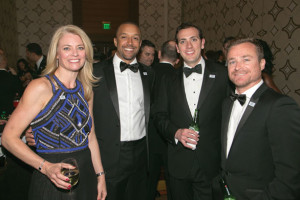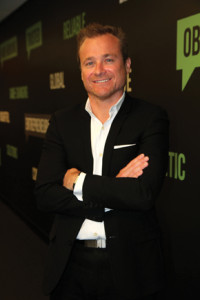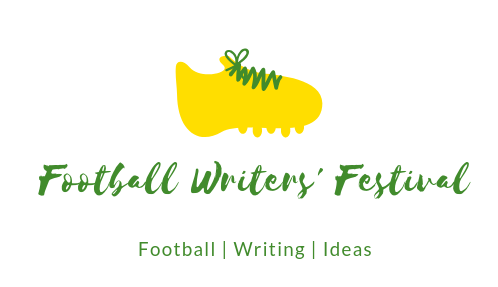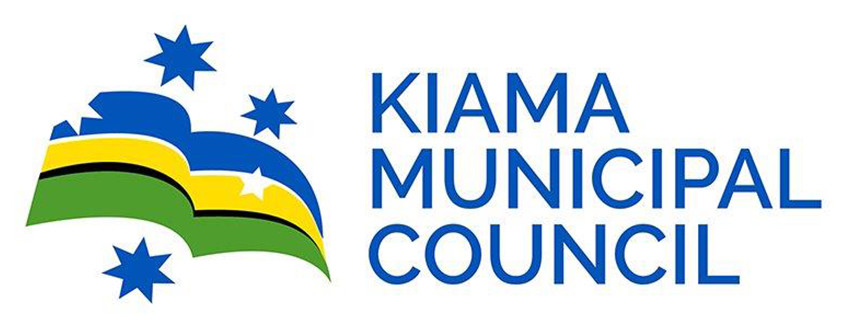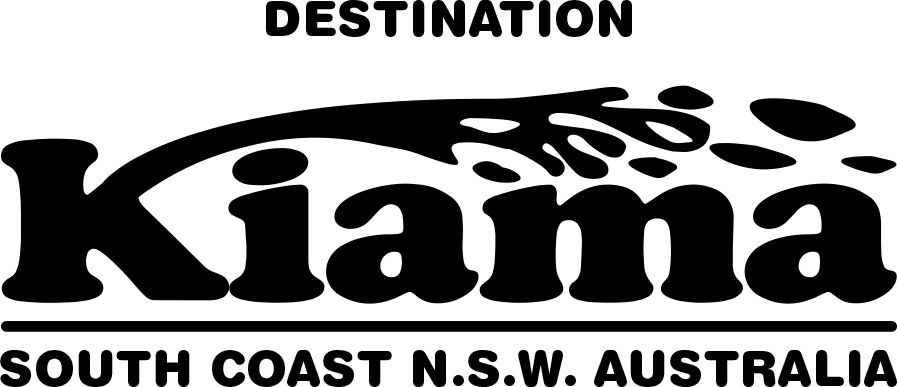In October, 2017, a breath of fresh air descended over Australian football when Danny Townsend, the former Manly, Sydney United and Parramatta midfielder was appointed as CEO of Sydney FC.
Apart from Lawrie McKinna at Newcastle Jets, Paul Trimboli at Melbourne Victory and Jacob Burns at Perth Glory the game is reluctant to employ former players in key roles.
However, Townsend has a track record in sports management which is second to none and in 2015 he was recognised by the Sports Business Journal as one of the 40 most influential global sports executives less than 40 years of age.
Ever since he began his role, there has been an air of confidence that Sydney FC will finally realise its true potential as the pacesetter in the game.
In this interview with Roger Sleeman, Danny Townsend reflects on his professional playing days, his successful career in sports management, the Sydney FC experience and espouses his views on the future of the game.
ROGER SLEEMAN
Can you outline your football background?
DANNY TOWNSEND
As a junior, my local club was Belrose Raiders and I progressed to district representation with Manly Association at u/10 level before playing Youth League with Manly in the State League.
Unfortunately, I suffered a knee injury at the age of seventeen so I just played club football in the Manly Premier League.
However, I must have been doing something right because I received a call from Tony Pezzano who was coaching Manly in the State League and after signing with the club, I experienced a successful season during 1997 when we won the League.
Next thing I knew, Dave Mitchell who was coaching Sydney United in the NSL approached me and I was fortunate to link up with seasoned players like Richard Plesa, Joe Vrkic, Velimir Kupresak, Steve Berry, Walter Ardone, Peter Bennett, and younger players, Joel Griffiths and Jacob Burns.
In my second season, 1998/99, we won the League but lost the grand final to South Melbourne.
The 1999/2000 season brought new hope to the NSL when Parramatta Power, sponsored by the Parramatta Leagues Club, entered the NSL under the guidance of head coaches, Dave Mitchell and Lawrie McKinna. I played there for two years before succumbing to a knee injury.
Subsequently, I returned to State League with Manly and under Gary Van Egmond we won the competition in 2002. Yet it was difficult to train due to my commitments with my Sports Science degree so football was taking second place and at the ripe old age of twenty three, I decided to hang up my boots.
R.S.
What did life after football present to you?
D.T.
After completing my bachelor’s degree, I undertook an MBA.
I always wanted to get into sports marketing and was lucky enough to get a job at the A.J.C. in their commercial department.
Two years later, with a colleague, I decided it was time to set up our own sports marketing agency which we named Repucom and after consolidating the business in Sydney, I moved to Singapore to set up an office and did a lot of work with the A.F.C.
Not long after, I moved to London and set up offices in Europe and eventually went to the U.S. I spent four years in New York before selling the agency in 2016.
R.S.
How successful was Repucom and what was your main service?
D.T.
By the time we’d sold the business, there were twenty two offices worldwide with two thousand employees.
The main function was to provide commercial solutions for rights owners e.g. in the U.S. we assisted the NBA, NFL and MLS and in England the EPL to generate maximum revenue from their assets.
We were involved with 1500 clients and it was primarily our job to formulate how these companies should invest their money in sport to capitalise the value of their brands with the application of data based programs which drove success.
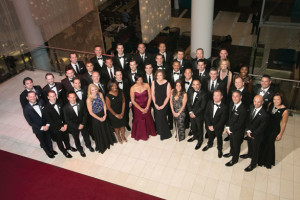
Danny Townsend with the Forty Most Influential Sports Executives under 40 at the Sports Business US Awards in 2015.
R.S.
How did the CEO role at Sydney FC come about?
D.T.
After the company was sold, I was acting for Nielsen Sports in a global role when I was approached to consider the vacant CEO position and I saw it as a great opportunity to return to football with an iconic club.
I’d been away all those years and it was so satisfying to return to my home city and assume the role.
R.S.
Was it a difficult decision after all those years in the corporate world to take up a position in Australian football which is dominated by politics, self-interest and non-football people?
D.T.
It was easy because these factors you mention were in fact opportunities to be seized upon.
If we can break down the barriers and challenges the code faces, we can finally unlock the potential of the game and awaken the “Sleeping Giant”.
R.S.
You’ve been in the position for 13 months.
How would you evaluate your experience to date?
D.T.
The success on the park has been gratifying, although it would have been even better if we’d won the double last season after success in the Premier’s Plate.
The transition between Graham Arnold and Steve Corica worked out without a blemish and we anticipate strong results this year.
Success under Graham Arnold has maintained a strong supporter base but we still want to grow the club so the commercial challenge is ever present.
R.S.
Apart from the big derbies against Wanderers and Victory, Sydney FC has never been really accepted by the Sydney football community.
In your opinion, why not?
D.T.
We have to roll up our sleeves in the local community and particularly appeal to the youth playing football so we need to provide a sense of belonging and provide a professional pathway for those who want to represent the club and strive for national team selection.
In the three years that Allianz Stadium is being rebuilt, when we’re playing at Kogarah and Leichhardt Ovals, we have great opportunities to increase our connection with the fans.
When the new facility is completed, the ground will hold 30,000 when it’s closed and 45,000 when it’s open so we will have an international class facility.
R.S.
You’ve made great moves to protect your territory with the matches at Kogarah and Leichhardt this season.
Will this be too little, too late, if the strength of the Southern Expansion bid is considered seriously by the FFA?
D.T.
Even before Southern Expansion bid surfaced we’d been talking to George’s River Council regarding the use of Kogarah Oval in view of the Allianz development.
However, we support South Western Sydney bid because it’s a growth corridor and we don’t consider it a threat to the Wanderers.
It’s about servicing the areas we need to and the St George and Sutherland areas are key to us with the large following we have from them.
I’m certain a lot of people from Canterbury Bankstown will also attend our matches at Kogarah.
R.S.
How much will the loss of Mierzejewski and Bobo affect interest in the club, and do the new imports Van Der Linden, De Jong and Le Fondre have the capacityto replace these former quality players?
D.T.
Nobody knew Adrian and Bobo when they signed for the club but it’s really about a 22 man squad and we have players like Zullo, Grant (before his injury), O’Neill and Brilliante who are unsung heroes.
Furthermore, we must trust the investment in our Academy over the next 3-4 years to produce our own stars.
R.S.
A-League boss, Greg O’Rourke, has stated the FFA will be investing heavily in the W-League which will be at the expense of the National Youth League.
You were playing at a time in the late 90’s when the NYL was booming and producing an abundance of quality players which is not the case now.
What is your take on this?
D.T.
Admittedly, there are limited financial resources but I believe the W-League has strong growth potential when you cite 6,000 girls play football in Sutherland and 5,000 in Manly Association as two examples of the growth of the women’s game.
Remember, the A-League youth teams are benefiting immensely by competing in NPL football.
Additionally, the A-League has been running fifteen years and money must be spent wisely so pathways are available for the W-League and NYL.
R.S.
Do you support an independent A-League run by the clubs?
D.T.
Definitely, with a sensible governance model required for maximum return.
From this standpoint, we need as much money as possible to allow access to the community to advance the game.
If the clubs get the structure right, with the correct use of resources, the game will grow exponentially.
R.S.
The game is dominated and controlled by non-football people.
How long do we have to wait before successful football business people like you are encouraged to work in our game and former players who want to get involved, are welcomed by the hierarchy?
D.T.
I agree we need more people with a background in the game and at Sydney FC, if a position is to be filled, we try and attract somebody who has an understanding of the game.
On our Board we have a mix of people with wide business experience and different skill sets who all have a great passion for football.
For me, it’s a privilege to work in the game which has been such an important part of my life and I look forward to every day at work in attempting to contribute something positive to its growth.


